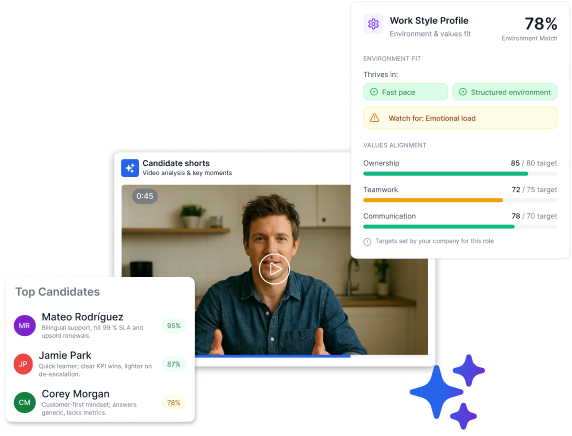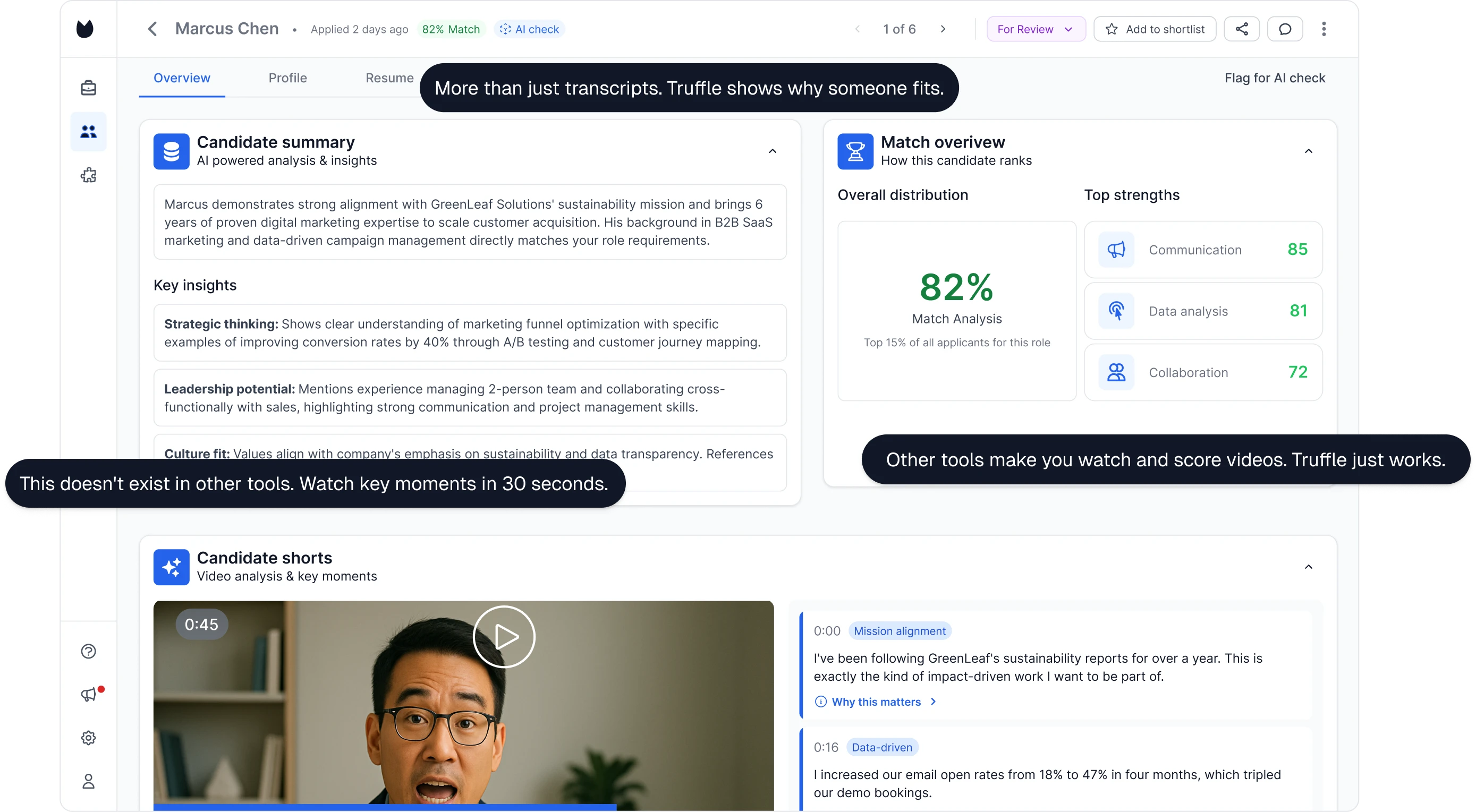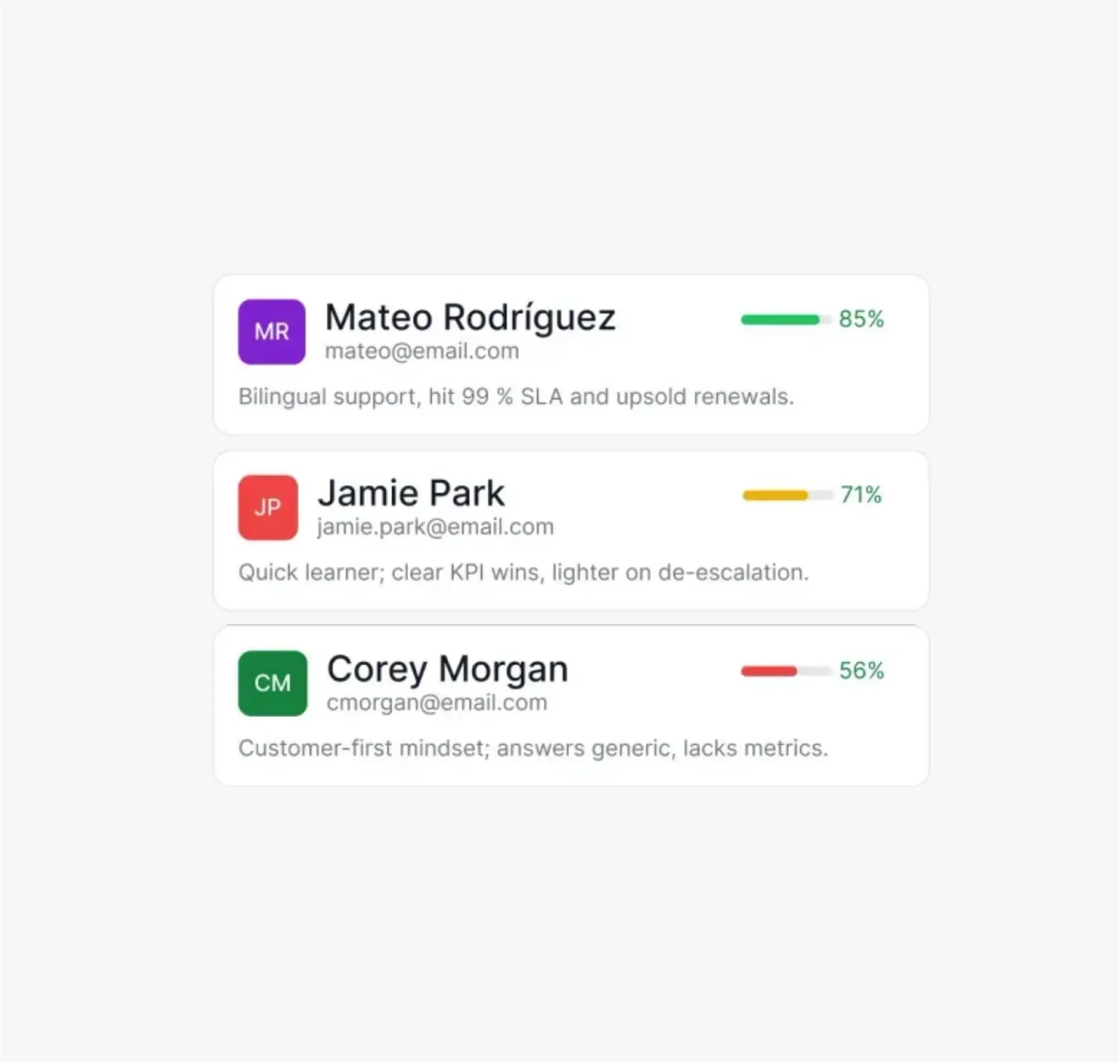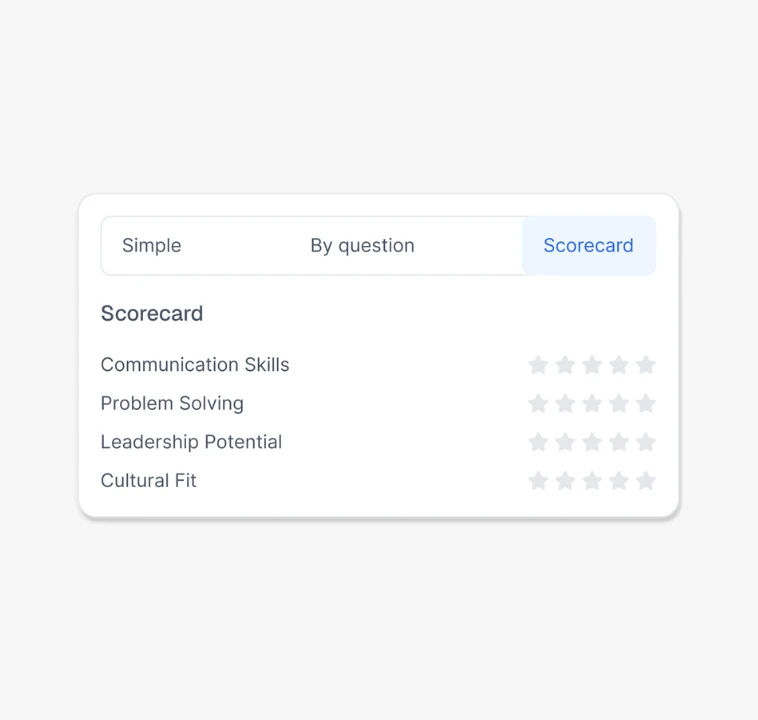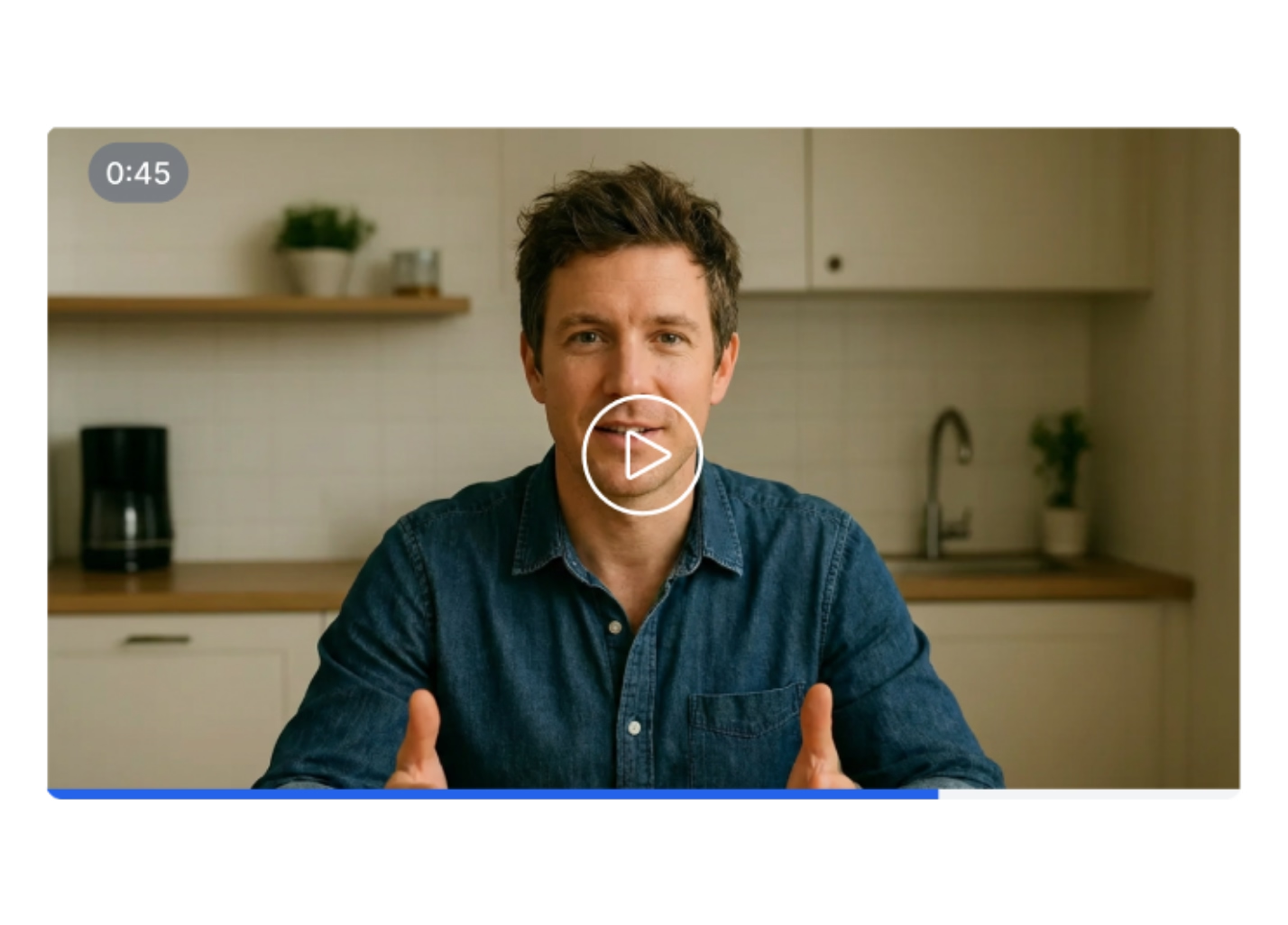We built video interviews for a world where every application is one click.
Easy Apply broke the top of the funnel. Candidates spray hundreds of applications without reading the job description, and AI fills in the rest. Y. A one-way video interview fixes that in two ways.
First, the simple act of spending ten minutes recording answers is a filter. In a world where applying takes five seconds, someone who actually shows up on camera is already more engaged than 90% of your applicants. Second, it's a lot harder to fake who you are on video. AI can write a perfect cover letter, but it can't make eye contact, think on its feet, or explain why this role matters to them.
You're seeing the actual person and not AI's best guess at what you want to hear.
